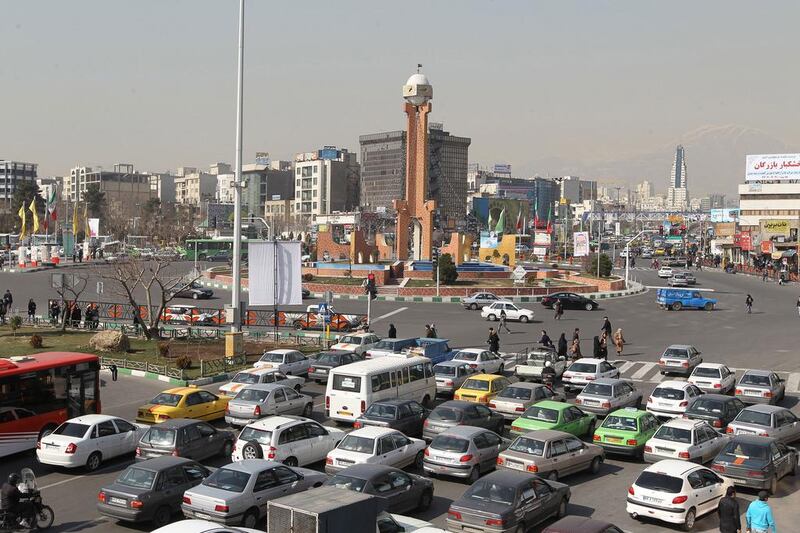For Iran, 2016 can be summed up as a year of refocusing attention on economic interests, as well as clinging to its core foreign policy principles.
On January 16, 2016 – implementation day of the nuclear agreement (known as the Joint Comprehensive Plan of Action) – crippling sanctions were finally lifted and Iran rejoined the global financial system.
Iran’s oil and gas industries also had a fresh start.
Tehran increased its oil exports from 1 million barrels per day to approximately 4m. Asian imports from Iran jumped nearly 92 per cent, according to Iran’s state news outlets.
Sales to Turkey and other European nations rose quickly and Iran became the third largest producer in Opec.
Iran also attempted to attract foreign investment.
Hassan Rouhani, Iran’s president, succeeded in signing major agreements with some of the world’s largest aviation, oil and gas corporations.
For example, Iran signed a historic deal with Boeing. This is the first business deal Tehran has concluded with an American aviation corporation since the 1970s. Iran is also finalising its purchase of planes from the European company Airbus.
Total, the energy producer, signed an agreement with the National Iranian Oil Company “for the development of phase 11 of South Pars, the world’s largest gasfield”.
Another deal has been sealed with Royal Dutch Shell, which signed a provisional agreement with NIOC “to further explore areas of potential cooperation”.
Not only has Iran ratcheted up its revenues, but more importantly, Tehran has cemented ties with the West through these economic and business agreements.
These deals give a cushion to Iran against potential future pressure from the West or against the possibility of the US attempting to walk away from the nuclear agreement.
In other words, European and Asian nations will be less inclined to jeopardise their investments in Iran by going back to the era of heightened political tensions, criticism and sanctions against Iran.
Geopolitically speaking, refocusing attention on economic interests gave Iran the necessary financial relief to pursue its strategic and regional ambitions and objectives.
This year has also emboldened Iran’s Revolutionary Guard Corps.
The IRGC has displayed its muscle in several countries in the region. This has led to heightened tensions between Iran and its regional rivals, causing further regional insecurity, conflicts and humanitarian tragedies.
In other words, despite the notion that Iran rejoined the international community and despite the misconception that Iran’s moderates appear to prevail over the hardliners, Tehran did not fundamentally alter the core pillars of its regional and foreign policies.
Iran’s leader, Ayatollah Khamenei, shrewdly balanced the moderates, who brought revenues to the government, and the hardliners who suppressed opposition, while still managing to expand Iran’s regional influence and ambitions. To preserve and advance his political and parochial interests, Khamenei insisted on maintaining Iran’s revolutionary values.
Domestically speaking, Iran’s greater concentration on the economy and its increased revenues did not trickle down to the population or ease the lives of ordinary Iranian people. Unemployment and inflation remained at record highs.
This is partially because Iran’s financial deals were all conducted at state level. The beneficiaries of those deals were mainly the IRGC and the office of Khamenei.
Corruption and economic mismanagement exacerbated the economic problems of ordinary people. In addition, as the hardliners gained more financial power, the restrictions on freedom and social justice increased.
In closing, even though Iran moderated its economic policies this year and prospered financially, Tehran clung tighter to its conventional foreign policy aims and its employment of hard power.
Dr Majid Rafizadeh is an Iranian-American political scientist, Harvard University scholar and president of the International American Council





